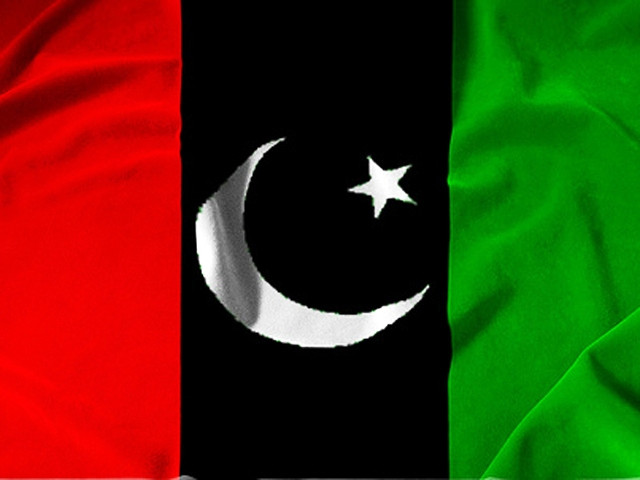First, the Jamiat Ulema-e-Islam-Fazal (JUI-F) withdrew support from the government. Then the Muttahida Qaumi Movement (MQM) pulled out and we counted the minutes, waiting for Prime Ministers Gilani’s government to collapse.
The Oil and Gas Regulation Authority’s (OGRA) intimation of an increase in petroleum prices in the New Year came as no surprise to economists watching the steady rise in global petroleum prices, though ever the opportunist opposition parties rallied to condemn the government’s move.
Commentators had been predicting an increase since the middle of December, while the formula for calculating oil prices is widely known. Should we have repeated the mistake of the 2007 Musharraf regime of not passing on petroleum price increases on consumers? The circular debt that was conceived during that period continues to haunt us today.
The wretched Pakistan People’s Party (PPP) government was about to collapse and the wishes of so many were about to be fulfilled! Could a reversal of the price increase be just too much to ask? Actually it wasn’t. The government blinked, the price increase was reversed, and the MQM and the Pakistan Muslim League-Nawaz (PML-N) both claimed victory.
So whose victory is this? Does it show a renewed seriousness among the higher echelons of PPP power to mend their ways and implement Nawaz Sharif’s 10-point agenda? Is it a victory for the MQM that it was able to push the prime minister of the country to make his way through an entourage of pro-MQM sloganeering to plead his case before the powers to be?
We can either celebrate the loss of PPP power or the rise of the opposition, however in all practicality there is little for us to celebrate.
Put your money where your seats are
None of our political parties are in a position to form a government alone. From the moment that the PPP lost its majority in the National Assembly, commentators demanded that the prime minister prove his majority in the parliament. However, it was not the sitting government that had to prove a majority. The onus was on the opposition parties to file a motion of no confidence and then prove their majority.
The PPP and the PML-N may be at odds, but at present the PML-N and MQM would hardly be seen as possible coalition partners. At some point, some understanding would also have to be established between the Pakistan Muslim Leauge-Quaid (PML-Q) and the PML-N. Would foes set aside differences to form a new government? It doesn’t seem so.
While our government may be a patchwork of coalition partners, the opposition is far from united. The Gilani government may be ridiculed left, right and centre, however, it’s much harder for the PML-N, MQM and the PML-Q to cooperate between themselves. Then again, what do I know?
Whither pragmatism?
The (supposedly) imminent fall of the PPP government created a perfect storm of what can be called nothing more than political opportunism.
While the nation is effectively in a state of war, recovering from the havoc of mass flooding, the uncertainty generated by the last couple of weeks was the last thing that was required.
After agreeing to the International Monetary Fund (IMF) program, the government consistently argued that an IMF program had not been imposed on Pakistan. Instead, the government said that Pakistan’s policies and recommendations had been accepted by the IMF. The only signal that we have sent to the world today is that we cannot deliver on our own policies.
Opposition parties have demanded that the government improve governance while work to reduce corruption. Noble sentiments, though both lack specificity. The Punjab government is guilty of as much waste and corruption as the beleaguered PPP. The Sharifs, their sons, wives and daughters all enjoy official protocol at the state's expense. The last time I checked they were rich enough to foot the bill themselves, though apparently not rich enough to pay any taxes.
The PML-Q seems to be in a win-win situation. Not only is the PML-Q feted by the government, while receiving feelers from the PML-N, it has also managed to get the parliamentary committee report investigating a Rs25 billion leasing scam on land owned by the Pakistan Railways (now Royal Palm Golf Club) placed on the back burner - Lt General Javed Ashraf Qazi, reportedly quite close to the Chaudhry’s, the main beneficiary.
An inconvenient truth
The PPP and the PML-N both have more to lose through confrontation and would rather maintain the status quo. If the doomsayers are to be believed, no one wants to take the helm of a sinking ship. The most optimistic analysis would concede that the PPP led government may potter along till the next general elections. However, being its own worst enemy it would exhaust what support it had.
The PML-N seems to be biding its time, happy to take pot shots at the government when offered the opportunity. However, these pot shots are being aimed indiscriminately. Governments in Pakistan are fragile at the best of times, yet the PPP seems to be spending most of its time just staying in power. It may serve the opposition well, however the country is worse off from such behaviour.
The PML-N quite rightly demands an end to corruption and improved governance. Perhaps they should set an example in Punjab for the PPP to follow? Perhaps Chaudhry Nisar should make the most of his office as head of the Public Accounts Committee rather than highlighting the physical features and relationship status of his political opponents.
We are most likely stuck with the status quo. The PPP emphasising its desire for dialogue and reconciliation, while the opposition sets ‘ultimatums’ and once fulfilled, state that they never set one to begin with. The PML-N may rock the boat, but not enough for it to topple over. We can just hope that we all don’t get sea sick in the process.
PPP destined to complete its term
The PPP and the PML-N both have more to lose through confrontation and would rather maintain the status quo.



COMMENTS
Comments are moderated and generally will be posted if they are on-topic and not abusive.
For more information, please see our Comments FAQ